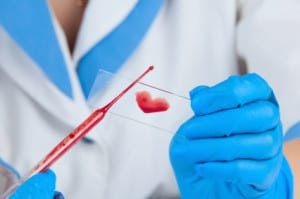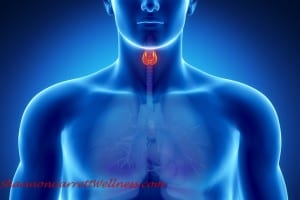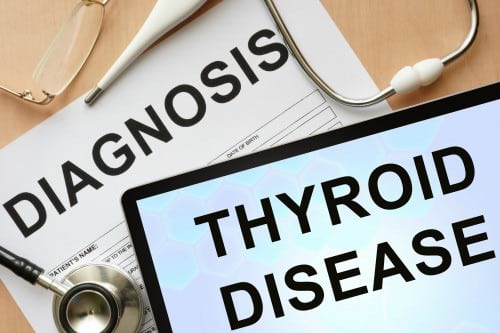
Recently I attended an educational event with several healthcare practitioners to learn about the latest research updates and clinical pearls regarding thyroid disorders. This is “Part I” based on what I learned. Part II will follow in my next newsletter.
TSH Test vs. The Woltman’s Sign
We’ve been hearing for the past few years that the TSH test is not a valid test (of course, we Hashimoto’s and thyroid patients at-large already knew this) for diagnosing a thyroid disorder despite many physician’s relentless use and reliance upon TSH lab values. You may not have heard of the Woltman’s Sign – it is actually a classic and overlooked sign of hypothyroidism. When the Woltman Sign is positive, it points to hypothyroidism and is based on deep tendon reflexes. Many integrative and functional medicine practitioners believe the Woltman’s sign is actually a very reliable assessment tool in consideration of how the electrolytes magnesium, potassium, and sodium affect the function of muscle cell. Since many thyroid patients do not necessarily have optimal levels of these electrolytes (especially magnesium) the assessment may result in a marked and delayed relaxation of the muscle stretch reflex. Coincidentally, the Woltman’s Sign is positive in 92% in overly hypothyroid patients.
Often overlooked in thyroid disease is the inverse relationship between thyroid hormone and cholesterol
When circulating levels of thyroid hormone are decreased, cholesterol is increased. Cold exposure affects thyroid hormone levels (downward) resulting in higher cholesterol levels. The message here is that if you were diagnosed with high cholesterol during the winter months and suspect or know that you have a thyroid issue…please recheck – especially if your doctor suggested medication for hyperlipidemia! Long-term, seasoned thyroid patients usually already know to increase their thyroid hormone dose slightly during the cold winter months.
Thyroid Enzymes
Associated with the production of thyroid hormone: One of the enzymes referred to as Deiodinase Type (D1) is responsible for removing iodine as in converts T4 to T3 inside the cell (but not in the pituitary). D1 is less active in women which explains why more women have hypothyroidism than men and it is downregulated even more by physical or emotional stress, inflammation, insulin resistance, diabetes, autoimmune disease, obesity, calorie restriction, pain, thyroid disrupting chemicals, depression and fatigue, etc. Deiodinase Type 2 (D2) – isn’t compelling enough to mention here. Deiodinase Type 3 (D3) converts T4 into the inactive Reverse T3 which is an “anti-thyroid” molecule competing with D1. It actually inhibits T3 at the cellular level, e.g. blocks T3 from being able to enter the cell where it is needed, which explains why some women feel worse on a T4-only medication and do much better on either a T3-only or a combination T4/T3 medication.
Ashwagandha
One study by Panda et al revealed that ashwagandha root extract stimulates thyroidal activity and also inhibits the oxidative degradation of liver tissue. This is important because the health of the liver can affect the conversion of not only thyroid but all hormones. Ashwagandha was also found to support mood, stamina, sex drive, the HPA axis, and neurotransmitter’s in the brain. In the study, therapeutic benefit was found in doses of 500 mg to 1500 mg as a single supplement – not in a “multi” adrenal support. Although ashwagandha is a nightshade, we’re not consuming the raw plant – what we are consuming in supplemental capsule or tablet form has been steam distilled or dried, removing the inflammatory chemicals.
Sex Hormone Binding Globulin (SHBG)
Is produced in the liver and an important lab marker for assessing thyroid function. SHBG levels increase as thyroid hormone levels increase (in addition to increases in estrogen). In a patient with hyperthyroidism, SHBG will be elevated and decreased in hypothyroidism. However, if the patient is using estrogen hormone replacement therapy, the SHBG is not reliable for assessing a thyroid issue. An optimal SHBG level is at least 70 (Hedberg, 2015).
Three stealth infections all thyroid patients need to be tested for include Yersinia enterocolitica, Epstein Barr, & H. pylori
Even in the United States, patients with thyroid disorders have a higher prevalence of antibodies to Yersinia than normal subjects (per research studies) or patients with other disorders. Often, treating the virus results in the termination of thyroid disease. Stool testing is not reliable when testing for Yersinia…it should be tested by a blood test to determine if there are elevated antibodies. Grapefruit seed extract (GSE) can rid the body of Yersinia when used under the guidance of a qualified healthcare provider. Epstein Barr is commonly seen in patients with autoimmune thyroid disease and often overlooked even with lab testing depending on which antibodies were tested, or the practitioner overlooking elevated IgG antibodies as being normal. The reason this human error can happen is because IgG antibodies are going to appear and remain high, sometimes for a lifetime…however, if the EARLY EBV antigen IgG antibody is elevated, it does indicate an active infection requiring treatment. Less than 9 is normal, whereas >11.2 is high. H. pylori is an infection that infects the stomach and is more common in Graves disease than Hashimoto’s. Stool testing is the gold standard for H. pylori (usually included in a GI Pathogen stool analysis at home test).
Don’t be fooled by “normal” thyroid lab tests!
If your doctor says “everything looks normal,” and you are experiencing symptoms of hypothyroidism, push ahead…either insist on further testing, or consider moving on to another doctor (always request a copy of your own labs!) who is more open minded. “Normal” is not necessarily “optimal,” and we want optimal lab values. It took me ten (10) practitioners over the course of 8 years before I found one who was thyroid and autoimmune disease literate. I don’t want that for you so listen to this wisdom and recognize when you must and need to MOVE ON to another practitioner. People like me are here to help guide, support, and work in tandem with your healthcare practitioner when you need us! Also, be sure to request testing for stealth infections especially if you aren’t getting well or making progress despite treatment.
Resource:
Hedberg, N. (2015), April 22). Thyroid Disorders 2015 Research Update & Clinical Pearls [Webinar and PowerPoint slides].
40% OFF DESIGNS FOR HEALTH PRODUCTS TO SUPPORT THYROID HEALTH
Below are products related to thyroid health based on recent updates. e.g. GI tract health, adrenal support, and addresses issues such as H. pylori.
Please be sure to use our Holistic Thyroid Care discount code in the coupon code box when checking out:
DISCOUNT CODE: HTC40
 GastroMend™ is a blend of botanical extracts and nutrient complexes with specific antimicrobial and mucosal healing properties. This novel combination of substances provides a new tool in the management of ulcers and gastritis by addressing both the eradication of H. pylori and the healing of the mucosal tissue. It is formulated as a quick-release capsule for dissolution and therapeutic action in the stomach and duodenum. Made with non-GMO ingredients.
GastroMend™ is a blend of botanical extracts and nutrient complexes with specific antimicrobial and mucosal healing properties. This novel combination of substances provides a new tool in the management of ulcers and gastritis by addressing both the eradication of H. pylori and the healing of the mucosal tissue. It is formulated as a quick-release capsule for dissolution and therapeutic action in the stomach and duodenum. Made with non-GMO ingredients.
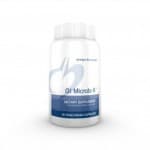 GI Microb-X™ is a blend of botanical extracts with a long history of use for supporting a healthy gastrointestinal microbial balance. The botanical substances in GI Microb-X are commonly represented on sensitivity testing provided by the major functional laboratories performing stool analysis. The ingredients provide a broad spectrum of activity against the most common pathogens present in the human GI tract in conditions of dysbiosis, while being relatively sparing of normal flora. Made with non-GMO ingredients.
GI Microb-X™ is a blend of botanical extracts with a long history of use for supporting a healthy gastrointestinal microbial balance. The botanical substances in GI Microb-X are commonly represented on sensitivity testing provided by the major functional laboratories performing stool analysis. The ingredients provide a broad spectrum of activity against the most common pathogens present in the human GI tract in conditions of dysbiosis, while being relatively sparing of normal flora. Made with non-GMO ingredients.
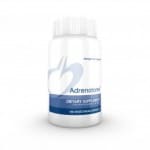 Adrenotone™ is a combination of standardized herbs and nutrients which are known for rejuvenating the adrenals. This product is designed to promote healthy cortisol levels, hypothalamic and pituitary function (HPTA axis), and catecholamine production (dopamine, norepinephrine, and epinephrine). It does not contain glandulars.
Adrenotone™ is a combination of standardized herbs and nutrients which are known for rejuvenating the adrenals. This product is designed to promote healthy cortisol levels, hypothalamic and pituitary function (HPTA axis), and catecholamine production (dopamine, norepinephrine, and epinephrine). It does not contain glandulars.


